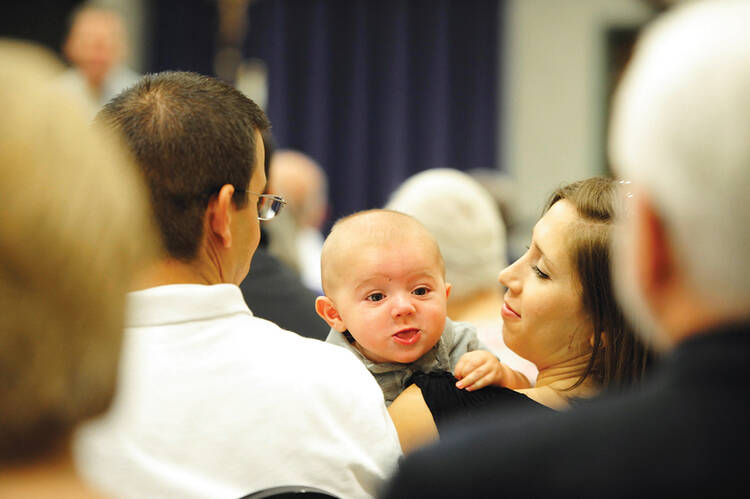The four major themes of Pope Francis’ visit to the United States—social and economic justice, environmental stewardship, immigration and the value of the traditional family—will resonate with many U.S. Catholics, but not all. That’s according to a new survey by Pew Research which reports that Catholics are evenly divided over whether it is sinful to spend money on luxuries without also giving to the poor. The study finds that a minority of Catholics see addressing climate change (29 percent) or opposing abortion (33 percent) as “essential” to their Catholic identity.
The survey, released on Sept. 2, finds that nontraditional family arrangements are fine with many U.S. Catholics. That may be because many are already familiar with those family structures: 25 percent of Pew’s respondents have gone through a divorce, and 9 percent of those who divorced have remarried. Forty-four percent say they have lived with a romantic partner outside of marriage at some point in their lives, and 9 percent still do.
The survey asked which family structures are acceptable and as good as any other for rearing children. It found: 87 percent say a single parent is acceptable; 84 percent say the same for unmarried parents living together; and 83 percent say the same for divorced parents. Sixty-six percent of Catholics say gay or lesbian couples are acceptable for rearing children. That includes 43 percent who say this arrangement is as good as any other family structure.
Cohabiting couples and divorced Catholics who remarried without a Catholic annulment are not eligible to receive Communion, and Pew found that “15 percent of Catholics are currently in one of those situations,” said Greg Smith, director of religion research and co-author of the survey. Given that obstacle, “it’s no surprise their Mass attendance is low,” said Smith. Only one in four of those Catholics say they attend once a week, while 41 percent of Catholics overall say they attend weekly.
Catholics often disagree with—even defy—church teachings on faith and practice, according to the report. About four in 10 of those Catholics who are not eligible to receive Communion say they still seek the Eucharist when they do attend Mass, Smith said. The survey found that 76 percent of Catholics—including 65 percent of Catholics who attend Mass once a week—say their church should allow them to use artificial birth control.
Although the U.S. Conference of Catholic Bishops has spent a decade battling the legalization of same-sex marriage, Catholics are split: 46 percent say the church should recognize the marriages of gay and lesbian couples—and exactly the same percentage say no.
The study founds that the church’s share of the religious marketplace is down from 23.9 percent in 2007 to 20 percent in the new survey, conducted in May and June of 2015. But Pew found that 8 percent of non-Catholics feel an affinity to the Catholic Church without affiliating, and 9 percent of U.S. adults are “cultural Catholics.” Pew identified 9 percent of Americans as ex-Catholics—also known as “lapsed” or “fallen-away” Catholics.
“We see enormous differences between cultural Catholics and ex-Catholics,” said Smith. “Cultural Catholics exhibit a significant degree of openness to the church,” he said, “whereas ex-Catholics have cut their ties. Asked directly, ‘Could you see yourself ever returning’ to a Catholic religious identity, four in 10 cultural Catholics say yes, but 90 percent of ex-Catholics say no,” Smith said.
Many cultural Catholics are still within reach of the church. One in three say they attend Mass once or twice a year or practiced some observance for Lent. One Pew survey number should give Francis hope as his visit concludes on Sept. 27: seven in 10 U.S. Catholics say they cannot ever imagine leaving the Catholic Church, no matter what.








